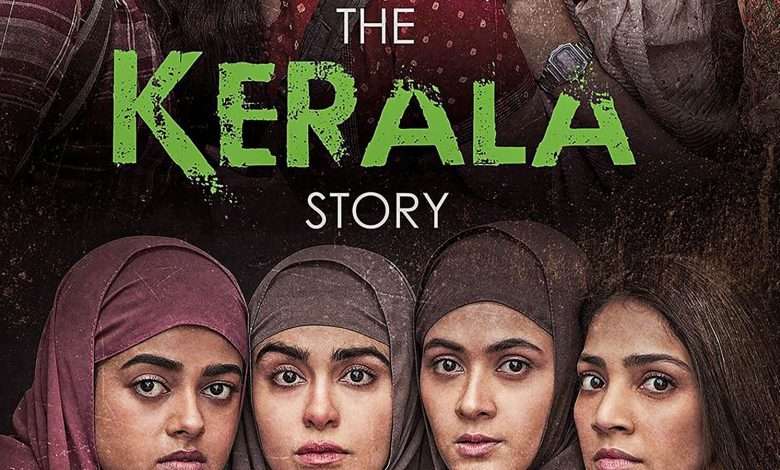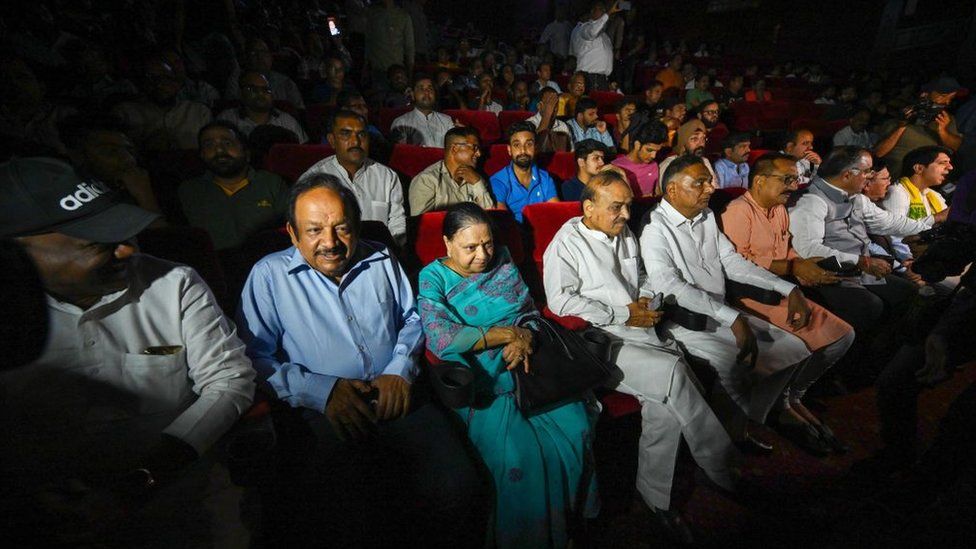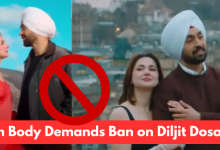The Kerala Story: How an Indian Film on Islamic State is Generating Controversy?

- An uproar has erupted in India over a new movie that tells the story of Hindu and Christian women who were allegedly persuaded to join the Islamic State (IS) Organization.
The Kerala Story, which is set in the southern state of Kerala, has sparked a heated debate among opposition politicians who are criticizing it as propaganda aimed at disrupting religious harmony. Meanwhile, leaders of the ruling Bharatiya Janata Party (BJP), including Prime Minister Narendra Modi, have endorsed it and even praised it during a recent political rally. Some party members have also organized screenings and given away free tickets to the film.
Despite these efforts, the film has garnered negative reviews from many mainstream critics who have slammed its performances and lack of nuanced storytelling. One critic even suggested that the film’s views on Islam and religious conversion were sourced from hateful WhatsApp groups.
The Kashmir Files, another divisive movie that was among Bollywood’s biggest hits last year, has been compared to The Kerala Story. The Kerala Story and The Kashmir Files both had modest budgets and without significant performers as they depicted the 1990s Hindu migration from Kashmir. Prime Minister Modi and other BJP officials supported the movie despite it receiving mixed reviews.
The controversy surrounding The Kerala Story began months before its release, when some politicians from Kerala demanded a ban on the film after its teaser claimed to narrate the “heart-wrenching stories of 32,000 females” from the state who had allegedly joined the Islamic State (IS). However, a fact-checking website, Alt News, published a detailed report debunking the claims and concluded that there was “no evidence” to support the number.
According to the US State Department’s Country Reports on Terrorism 2020, there were 66 Indian-origin fighters associated with the IS as of November 2020. In September 2021, India’s National Investigation Agency reported that it had arrested 168 people in connection with 37 cases “of terror attacks, conspiracy, and funding” inspired by the ideology of the Islamic State.
The Kerala Story, however, is allegedly based on years of research and true events, according to the filmmakers.
As the release date of The Kerala Story approached, the film faced legal challenges and mounting criticism in April. The Kerala high court refused to stay the release, but the film’s makers agreed to remove the teaser, which included the controversial claim of 32,000 women joining the Islamic State. The film’s description on YouTube was also changed to “a compilation of true stories of three young girls from different parts of Kerala.”
In 2021, after the Taliban regained control of Afghanistan, Indian officials reported that four women from Kerala who had joined the IS were in jail there. However, a police official from Kerala, who spoke anonymously to Bharat Details last year, stated that “there are not more than 10-15 women who have converted and left to join the IS from Kerala since 2016”.
Many supporters praised The Kerala Story after its release, stating that it addressed an important issue that warranted discussion. The film has been made tax-free by two state governments – Uttar Pradesh and Madhya Pradesh – both governed by the BJP. However, others have accused the movie of demonizing Muslims and promoting Islamophobia.
In Tamil Nadu state, an association of multiplex owners announced that they would stop screening the film due to protests and poor audience turnout. In West Bengal, governed by the Trinamool Congress, the film was banned on the grounds that it “could be dangerous to peace and order.”

Several BJP leaders, including at least two federal ministers, and some filmmakers have criticized the ban. On Friday, the makers of the film will petition India’s Supreme Court to lift the ban.
The film has also sparked social media campaigns – many people have been sharing examples of religious camaraderie in Kerala under hashtags such as #MyKeralaStory and #RealKeralaStory.
Singer TM Krishna wrote that over the past two decades, he has performed at “innumerable temples” across the state in front of “people who belong to diverse faiths”.
Political cartoonist EP Unny shared a cartoon of a mosque, temple and a church standing next to each in Kerala’s capital Thiruvananthapuram, calling it “the real Kerala story”.
Kerala, considered one of India’s most progressive states, is often praised for its religious harmony. According to the last census in 2011, 27% of Kerala’s 33 million people are Muslims and 18% are Christians.
Several politicians and Muslim leaders have alleged that the film is part of a larger campaign to disturb religious harmony and “insult the state“. Some people have also offered monetary rewards to anyone who could provide proof of the film’s claims.
The State’s Chief Minister Pinarayi Vijayan also criticised the film ahead of its release, saying that it seemed to have been made “with the aim of communal polarisation and spreading hate propaganda”. His government, however, has not banned the film.
The Kerala Story’s release coincided with a heated election campaign in Karnataka, the only southern state where the BJP is in power.
Mr Modi had praised the film during an election rally last week, saying that it tried to “expose the consequences of terrorism in a society”.
But analysts say that while such movies create plenty of noise, they are unlikely to have real-life political impact.
Sandeep Shastri, political analyst and pro-vice chancellor at the Jagran Lakeside University in Bhopal, says that films such as The Kerala Story are more likely to appeal to people who already support its message.
“It does not bring more people to your side.”

